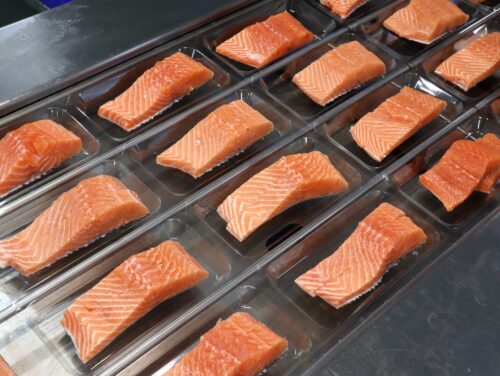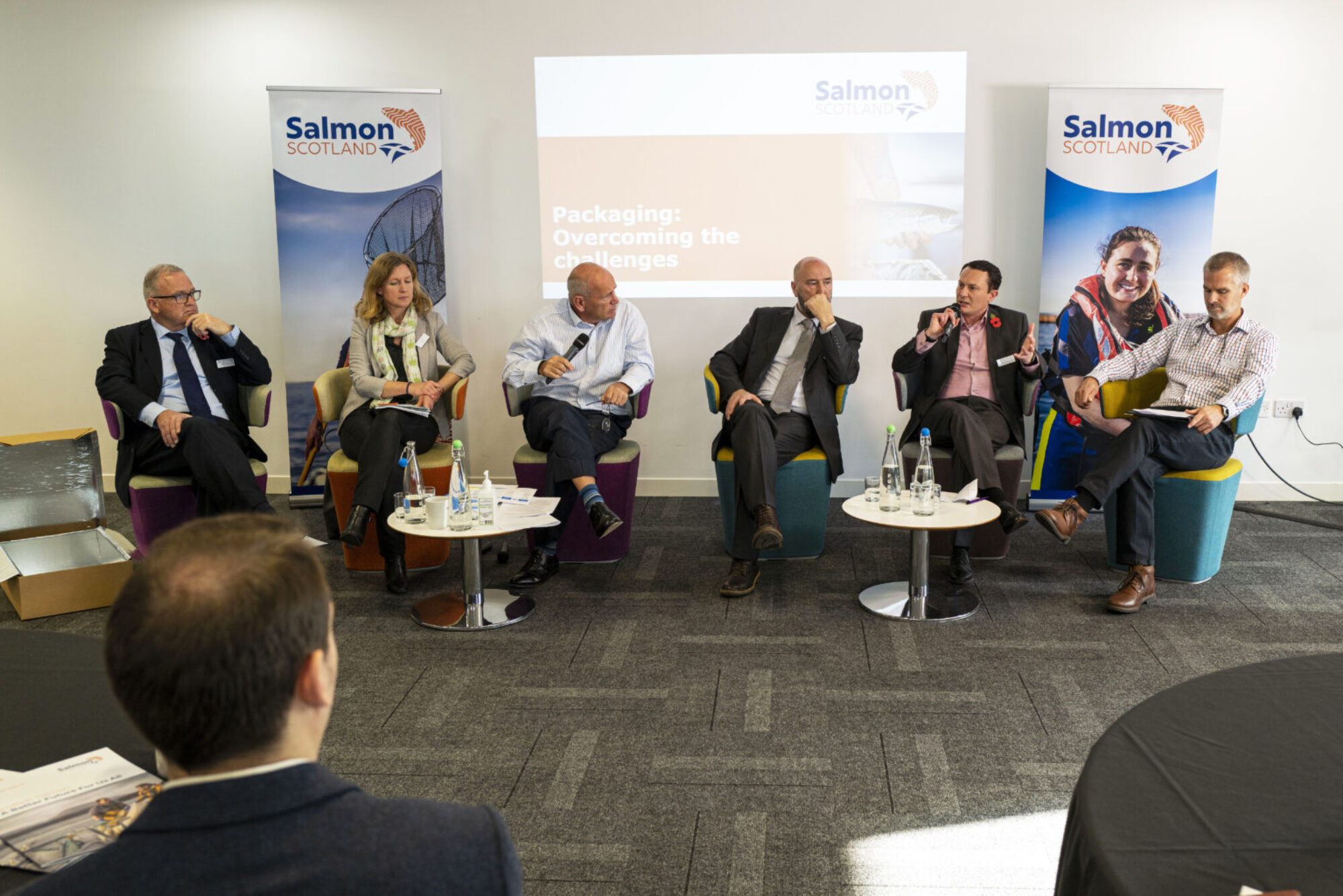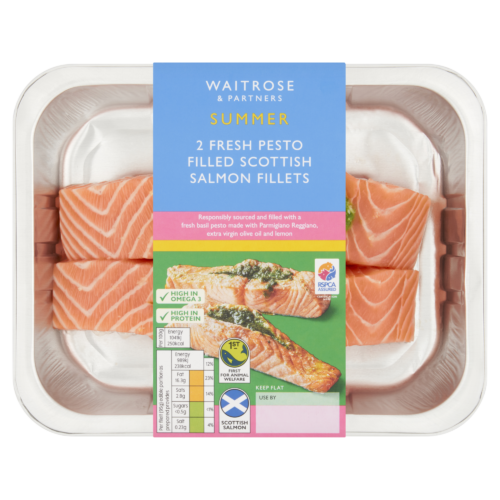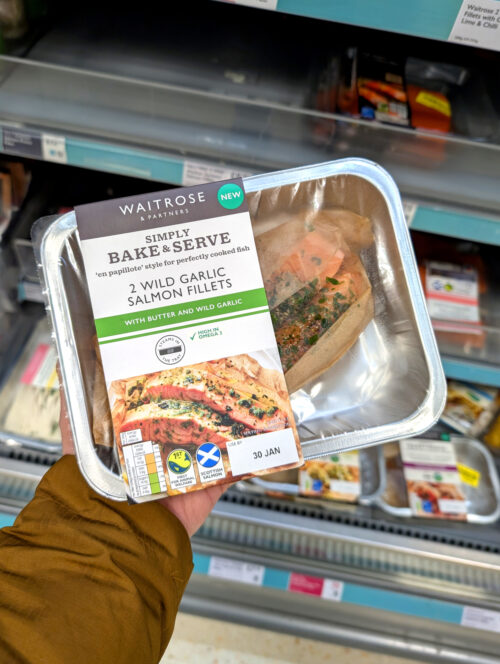
Aquascot launches two new Scottish salmon products at Waitrose
Ed Ley-Wilson, Head of Aquaculture, was invited to sit on a panel of leading figures in both the salmon production/processing and packaging/cargo industries.
Entitled 'Packaging: Overcoming the Challenges' and held in Glasgow on 3rd November, this was a discussion that took Salmon Scotland's 'A Better Future For Us All' sustainability charter as a basis for looking ahead to the possible improvements to come.
The group discussed the current usage of packaging across the industry, the alternatives to single-use plastics, the pivotal impact of end-user recycling capability and the possible innovative packaging solutions that could be harnessed in the near future — including 100% recyclable and biodegradable/compostable options.

Image: Andrew Bett, Dr Clare Cavers, Atholl Duncan, Donald Buchanan, Conan Busby and Ed Ley-Wilson (Fish Farmer Magazine)
Ed Ley-Wilson, Head of Aquaculture: "The need to act is now and we can do so at international, national and local levels. Here at Aquascot, we are thinking global and acting local, and there is some great work happening via our Environment & Sustainability team. Reducing food waste and energy use and reducing our carbon footprint are all actions underway. But we also all need to ask ourselves what we as individuals are doing to play our part in mitigating some of the damage our carbon-expensive lifestyles have caused. We can all do our best at home to purchase locally grown food, eat seasonally, reduce our red meat consumption, drive less, use more public transport, minimize our flying and many more actions besides."
Acknowledging the need for collective action as an entire industry, while continuing to prioritise food safety and quality, the consensus across the panel was clear — working steadily towards 100% reusable, recyclable or biodegradable packaging is a key focus for all businesses across the salmon industry.
Read more about the panel via the Fish Farmer magazine website.

Aquascot launches two new Scottish salmon products at Waitrose

Introducing Our New Summer Dish: Fresh Pesto Filled Scottish Salmon Fi...

Aquascot is excited to announce our involvement in the new 'Simply Bak...

Aquascot has appointed Fred Bowden as Chairman of the Aquascot Board, ...